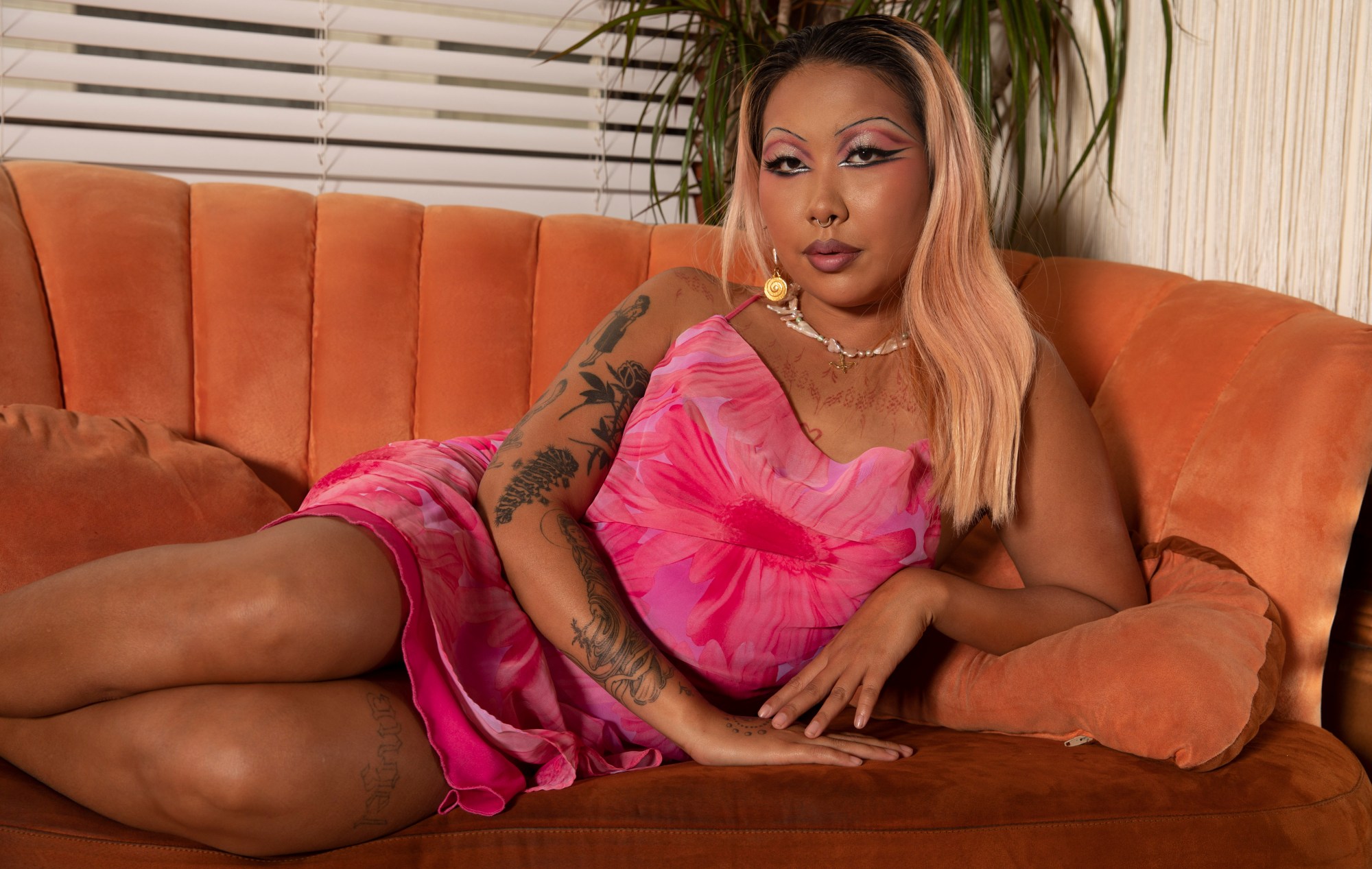“I love when people connect with my writing,” says writer, soon-to-be-published author, and community organizer Mimi Zhu. But over the past year — since Britney Spears reposted their words on socialism, wealth distribution and striking at the beginning of the pandemic — they have felt equally as grateful to their readers. After the “Comrade Britney” moment, Mimi saw their growing platform as proof that the wider social media audience, now struggling to survive crumbling social structures and life-altering change, was intrigued by a shift away from surface-level content. A door had been opened to deeper discussion around mental health, and Mimi became a helping hand offering tender support as others walked through it.
Up to that point, they’d been releasing a monthly newsletter, Write to Heal, focusing on topics like identity, self-care and trauma from the perspective of their lived experiences and struggles to overcome abuse and depression. As Mimi developed tools in their own growth process, their digital community also grew. They witnessed the beauty of readers and followers “getting to know themselves and being soft with themselves” through their own self-work. “It gives me a lot of meaning, a lot of fulfillment, knowing that we’re all going through this exploration of depth together,” they say. “When you read my work, we create a relationship.”
We sat down with Mimi to discuss their reflections on how we’re all interconnected, the writers they love most, and what love looks like as a day-to-day practice.
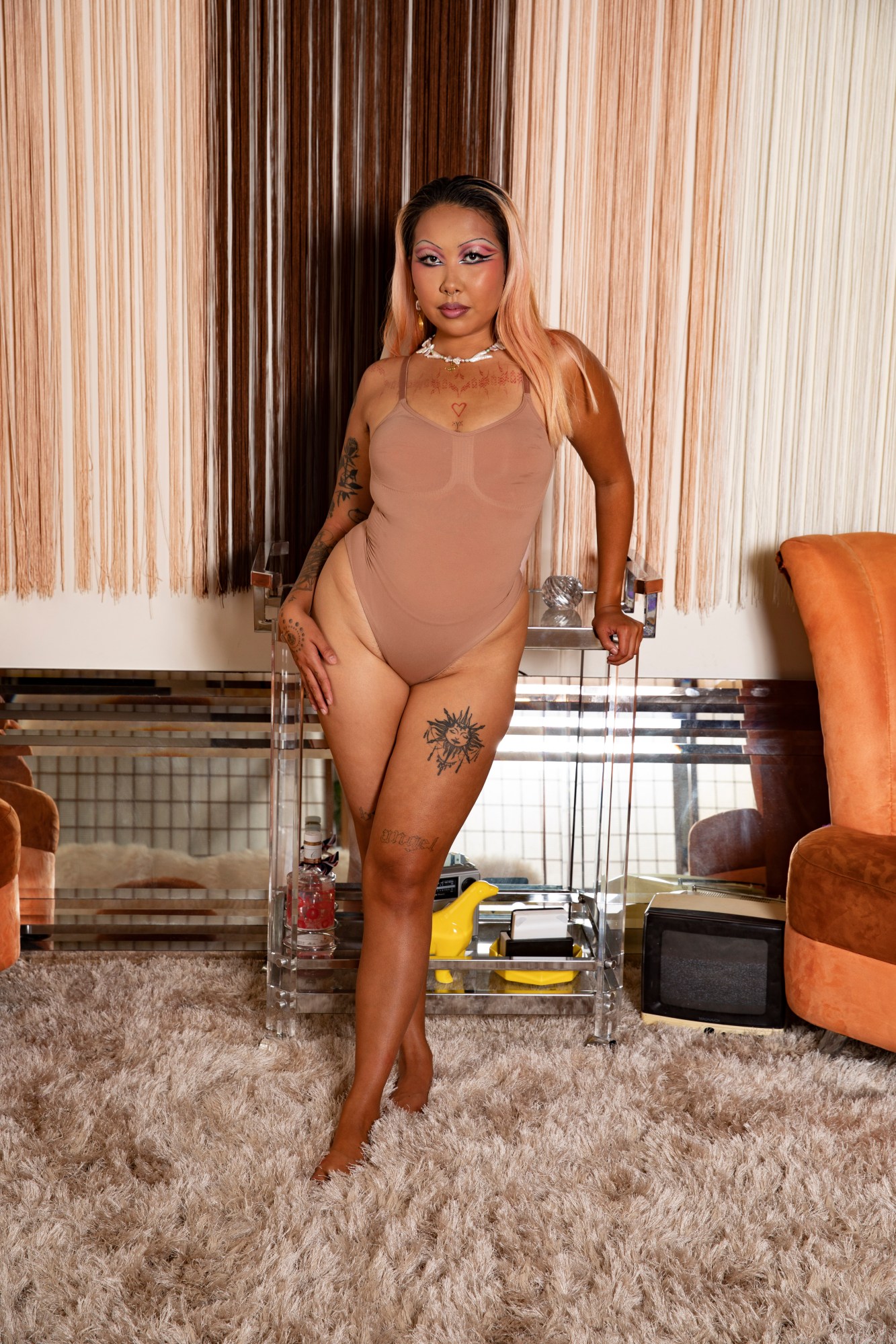
How did this all begin for you?
About a year ago, the platform I had on Instagram was significantly smaller than what it is today. It was very intimate and I really liked it that way. Only in this past year did it snowball in a really big way — which I’m very grateful for. At the same time, it’s a little jarring. Visibility is interesting. We have to be critical of the platform that we’re getting visibility on. Instagram can be very consumptive, very toxic, very ego-driven. I have to set very firm boundaries. I use the platform as a resource instead of a way to just make myself consumable and consume others.
I’ve been writing for like 10 years, but I started to post my writing maybe two or three years ago, with a monthly newsletter. They were so small and so sweet. I felt like I was sending letters to my friends, who eventually encouraged me to make them public. I was very, very nervous about that. It came from a scarcity mindset of my own. I was like, “People aren’t going to be interested in what I have to say.” They’re just going to want to see my face sometimes when I look cute, or when I turn a look. But one day I was like, “You know what? This comes from my heart. And I really have run out of pictures of myself. So I’m going to post this.”
I’m shook to my core about the response. Seriously. It’s really beautiful to see how we all resonate and all our thoughts and feelings are interconnected.
Social media is this really strange double-edged sword, right? On one end, there’s this huge potential to connect and then there’s this other dark side, of disconnection and consumption and what feels like connecting, but isn’t.
It’s the illusion of connecting. Very surface level. For example, with infographics, or even my writing, it’s words on a screen. But I hope my writings and these infographics encourage people to learn more. I hope that they can be invitations for people to read more, to learn more about abolition, to learn more about history, to learn more about queerness, instead of just being like, “I read this infographic, that’s it. I know it, I got it.” If we can accept that it’s just the surface, then we can go deeper.
You mentioned your work began as a journaling experience. How did you develop that into a framework for the public?
It was such an intimate and private practice for me. I was in a really toxic, abusive relationship on and off for three years. Toxic relationships are so interesting, because even though you’re striving to be in partnership with someone, it can be the loneliest and most isolating you can ever feel. It’s easy also to feel super isolated and lonely and have all these feelings of rage and sadness and loneliness with nowhere to put it. Spiritually, I didn’t know how to be alone. I felt like whatever I had to say did not have worth. I was policing myself, even in my writing.
It’s taught me about expression — the ways that we can bring life to ugly emotions and release them. I told myself, it doesn’t have to be good. It doesn’t have to be of a standard. That comes from colonial thinking and elitist thinking. It just needs to be true. We’ve been told so much that our truth is not worthy.
That’s really what prompted me to share things that I wrote privately. I realized it didn’t have to be as isolating or lonely as I thought it would be.
I got a new journal recently and it took me forever to take the plastic off, because there really is that feeling of “It’s not going to be good enough, whatever it is I’m feeling.”
Unwrapping that plastic is an invitation to yourself, to be close to yourself. That’s daunting and we’re not taught to do that. We’re taught to really push that away, because feelings are “unproductive.” I feel like that’s such a big thing. We believe the best writing is writing that works toward progress, which I think is a pretty violent word. I think what it really is, is an invitation of closeness and depth.
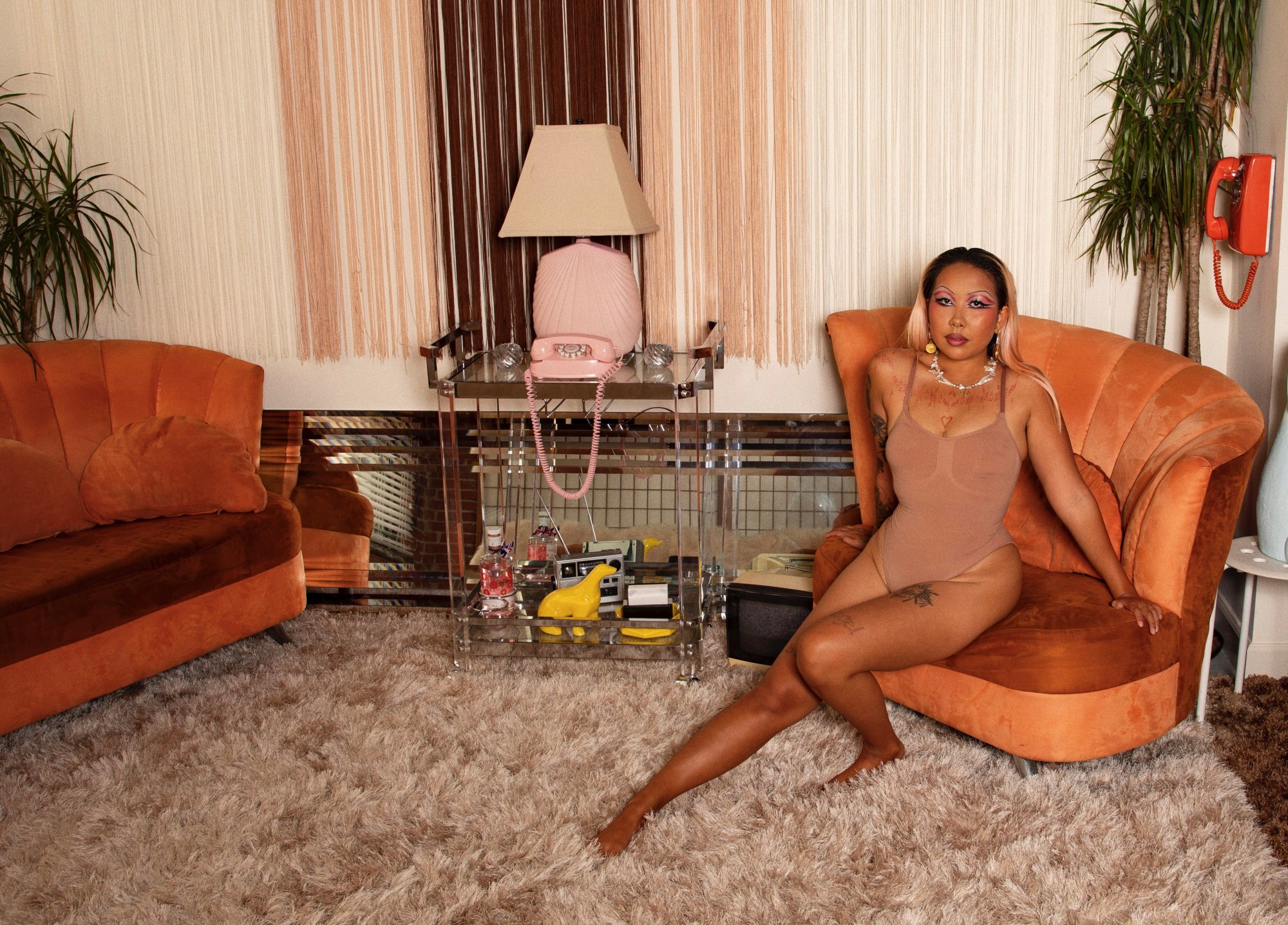
Was there anything in particular in this past year that you learned about yourself that you weren’t expecting to uncover?
I definitely had a big, big revelation about relationships. I was so addicted to being occupied. I realized how much I condemned myself for being unproductive and therefore in my moments of stillness, feeling so ashamed. Addicted to constant movement. That was a really big wake-up call for me. I was doing too much.
I realized that in my exhaustion, I wouldn’t really be able to uplift anybody anyway, especially not myself. I really had to call myself in.
I wrote about this recently. Taking a break implies a fracturing of the day. In that language, productivity is considered more precious and more sacred than my wellbeing. I don’t think rest should be called a break in the day. I think rest is necessary, especially if we are committed to changing the systems at hand.
It feels like a door has been opened to paying more attention, to digging into how we’re relating to each other on an identity level. These points of reckoning were really stark — in our face. I’m curious to know if there are any tools that were helpful for you in processing the racial violence and tragedy of this past year.
People who may have shied away from conversations about race are now engaging in it. There is constant grief that is very specific. On Instagram we see grief… grief… product… joy… grief… product… joy. Do you know what I mean?
What does this do to our mind? bell hooks said she’d be happy to never have to see violent images of Black people suffering again. Because what do these images do to us?
In response to these things, we’re going to have to be very committed to loving ourselves and loving each other. Love has carried me through. Tenderness, warmth and the belief that love is the one force that keeps us alive. Another thing that’s keeping me is to honestly and wholeheartedly make sure to apply it in my everyday life — to invest in unlearning anti-Blackness, unlearning capitalism and engaging in mutual aid.
I can’t call myself an organizer or an activist, but I can call myself a care worker. I’m committed to listening and mourning and grieving in the ways that I need to. I really want to uplift a lot of people who are feeding people, equipping people with self-defense classes and maintaining community fridges. I also have a lot of love for book clubs. It’s very illuminating how everybody has their own strengths.
My biggest involvement would probably be in healing and grieving circles, I’m constantly moved by the energy that people put into making sure there are spaces where we can just cry. I was reading this book by Malidoma Patrice Somé, who is an African writer, and he talks about ritual. The book is called Ritual. He talks about how the Western world is so scared of grieving out loud. How Western funerals, for example, are very quiet. Very, “Let’s not really show our feelings.”
I really believe people should grieve however they want. If they want to be quiet, if they want to be loud. It is what it is. Real community is being able to hold space for people’s true feelings and support each other through it. I catch myself feeling — even when I’m with my friends — afraid to cry. After hearing about the numerous attacks on our Asian elders, I had a lot of friends, who I’m so grateful for, checking in on me. I found it very difficult to cry in front of them but that’s really the core of community and the core of care.
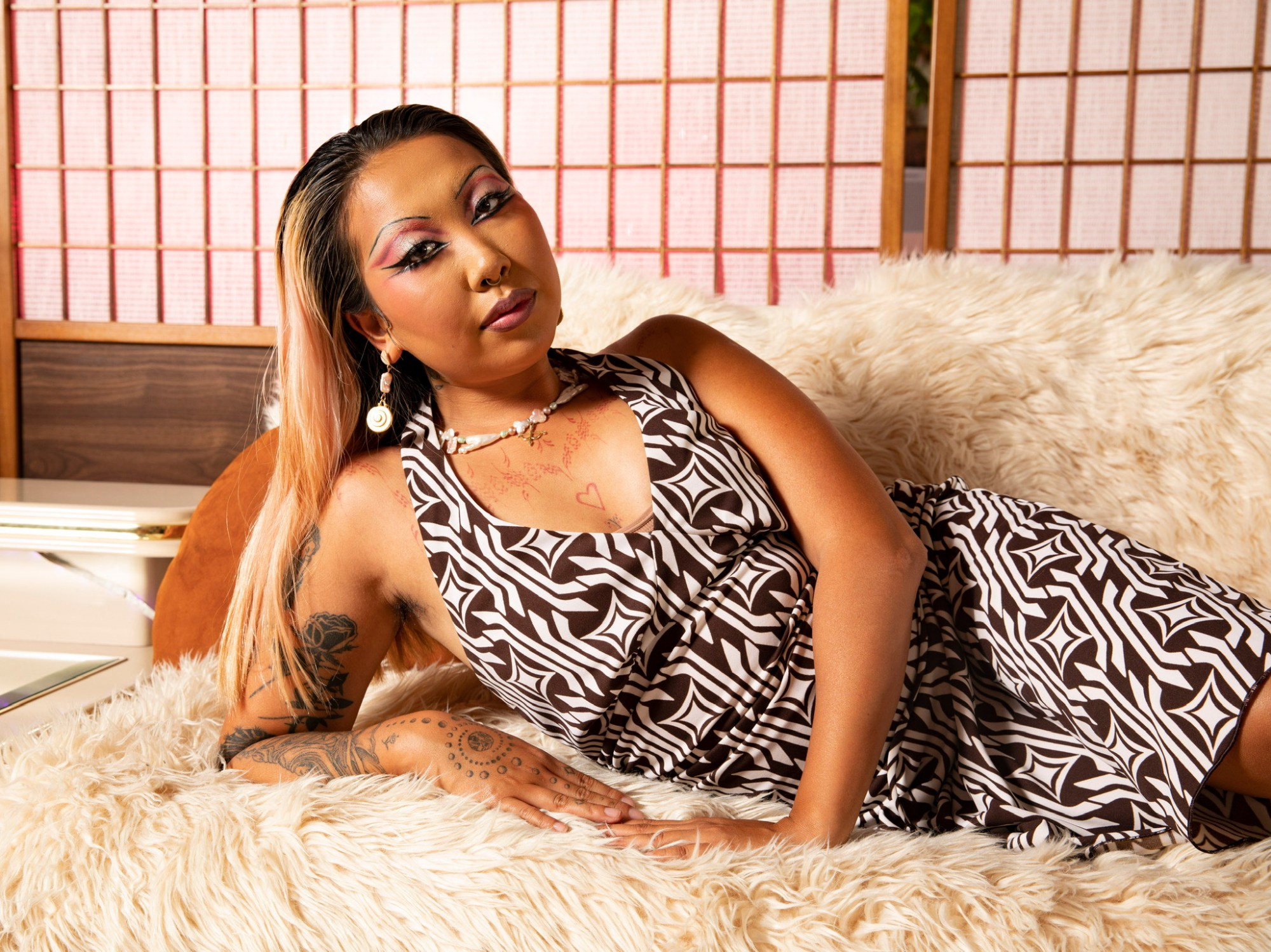
You mentioned Malidoma Patrice Somé. Are there any other particular voices or leaders or activists who you’re thinking about right now?
Definitely. For me, it’s really helpful to allow myself into quiet spaces, with a book on my lap. It’s so generous that books are just like, “Hey, here’s just a bunch of wisdom and we’re just giving it to you for a very small price. You get to carry me around.” What a miracle.
Audre Lorde is my number one of all time. She’s so tender, so powerful, so soft, so strong. She always talks about celebrating dynamic difference and sameness. A lot of people are so conditioned to the binary, and she just writes the most wonderful queer theory.
Also bell hooks. She’s so committed to love in a way that’s more than just romantic. It’s just so expansive. I also just finished reading a book by Bayo Akomolafe; he’s a Nigerian theorist and philosopher. He talks about chaos specifically, how chaos is ever-changing and not like this strict structure which I think is really radical. adrienne maree brown is such an important voice. She’s also very soft.
There’s Braiding Sweetgrass by Robin Wall Kimmerer. She goes off, she is incredible. I also read a lot of abolitionist work by Mariame Kaba, Ruth Wilson Gilmore and Angela Davis. Black feminist writing has truly transformed me. As a writer, I have to realize that so many ideas are coming from the beautiful seeds that have already been nourished and planted by writers who have been doing the work for so long.
I really like writers who, when I read them, it feels like they’re in the room with me, holding me. My dream one day is to have a library.
I would spend hours at your library! I’m reflecting on what you’re saying about Black feminist scholarship and theory. Work that’s really steeped in wisdom and lived experience. You mentioned Audre Lorde, and how she focuses on sameness and difference. As a Black woman, I’ve been thinking about this a lot lately since the reckoning coming up out of the Asian American community. It was really powerful to see people speaking out from the perspective of their lived experiences that haven’t had the same platform historically as the Black struggle, or the same focus in American culture.
Yeah. I really, really appreciate you for saying that. There are so many layers to it. I feel like it was actually very jarring for a lot of Asians to feel like, “I actually really need to speak on the stuff that I’ve gone through now.” There was a really intense surge of trauma at the surface for a lot of us. I think a lot of people were deeply triggered and not only in deep grieving for the people whose lives were taken, but also grieving parts of their own lives.
I always go back to this quote that has been quoted again and again, from the Combahee River Collective, about how when Black women are free, everyone will be free. I really also stress that to the Asian community as well. It is important when thinking about all liberation.
I think about people like Grace Lee Boggs and Yuri Kochiyama, these ancestors who joined forces. The most wonderful thing is being able to care about each other. To be like, “Hey, like, how are you? Can I send you flowers?” Or whatever gestures that encourage rest and grieving together because grieving is truly very collective.
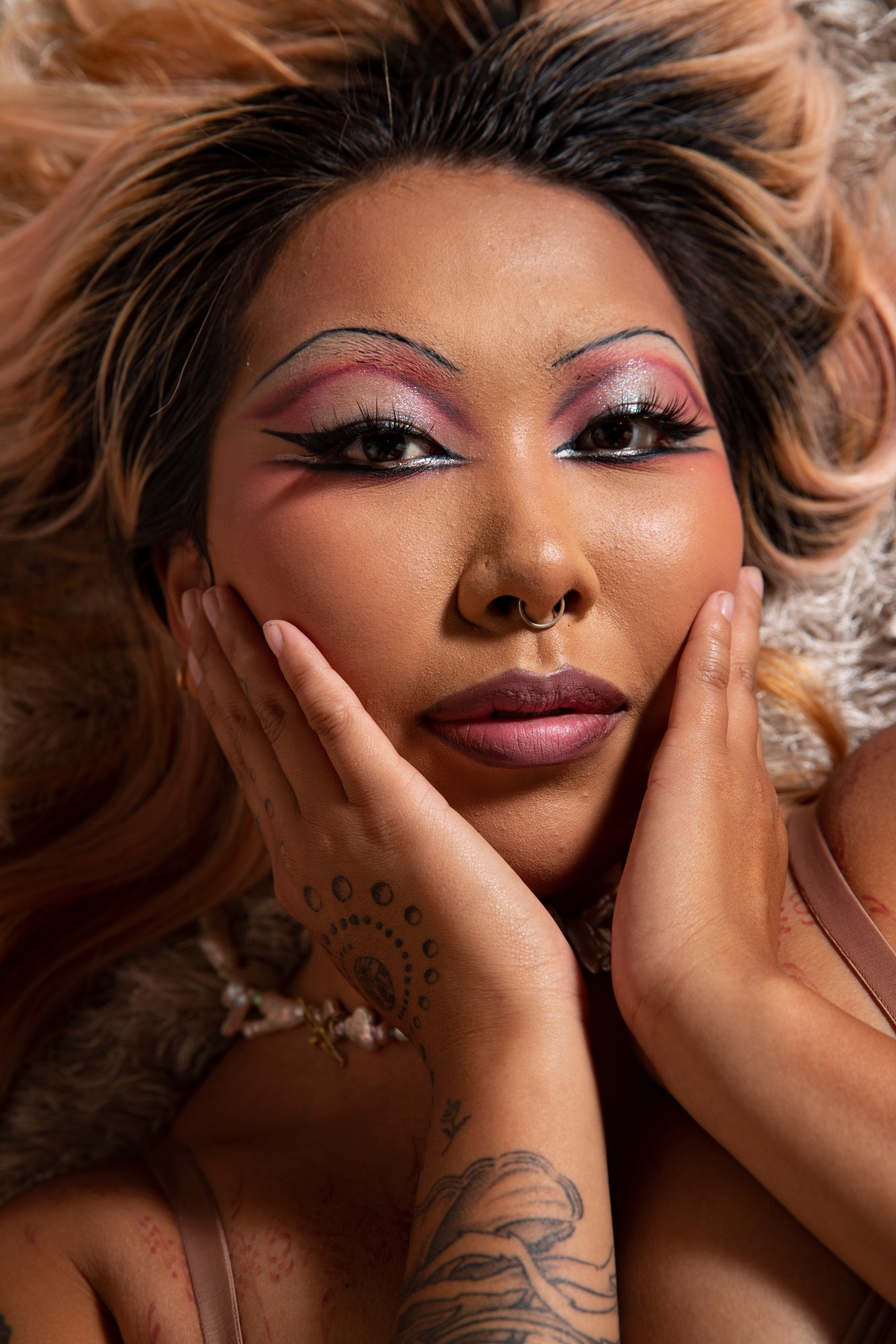
What is giving you joy right now? What’s making you feel hopeful, like there are new possibilities?
The hummingbird that’s been outside my window for the past hour. The fact that spring is here. Flowers. Seeing little seedlings.
Writing my book has made me really happy. It’s called Be Not Afraid Of Love. It’s going to be out next year with Penguin, exploring love and fear and numbness and rage and sorrow and joy. I’m really excited to share it with everyone and especially to have events and gatherings where we can be together again and uplift each other and have healing resources there. This whole book is really about relationships — with each other, with the Earth, with the state, with our feelings. We’re all in relationships all the time, and we will be forever. While the book explores all of our relationships, it always comes back to our relationships with ourselves, and nurturing the love within ourselves will allow us to no longer be afraid of love.
